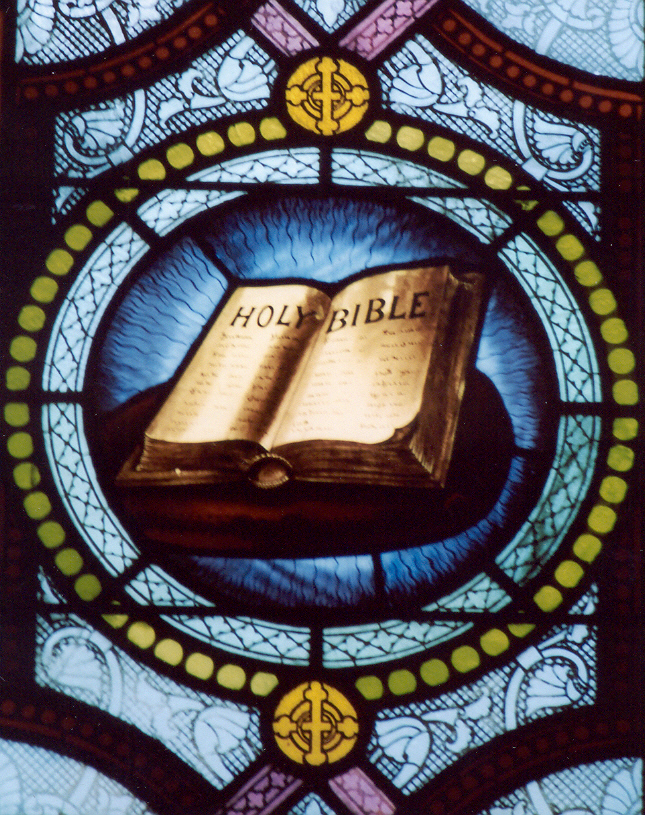
Return to
Index The Catholic Faith
Return
to Level One Topic Index
Home Page
What is faith? Many of the stories we enjoyed when we were younger talk about the importance of "faith", or "believing." "if more children would believe in fairies, then Tinkerbell would come back to life," says Peter Pan. Remember The Little Engine That Could? The little engine was able to pull an enormous train when the bigger engines failed. He repeated over and over to himself, "I think I can." By believing that he could pull the train over the mountain, the little engine made his wish come true.

But that is not the kind of faith we are talking about here. Fairy tale heroes make things come true by having "faith" in them. But truths about God, about ourselves, and about God's Church are real and true whether we believe them or not. For us, faith is a gift that God gives us. This gift is the power to believe what God tells us about himself and about the world he made. We receive the gift of faith at Baptism. Because most of us have had the gift of faith since we were babies, we often take it for granted. We find it easy to believe what we are taught in religion class. We don't realize that it is only because of God's help that we can believe so easily. But if you think about it, because they are mysteries, many of the truths we believe cannot be accepted by the human mind alone. We cannot possibly understand completely how God can be three Persons but only one God. We cannot "prove" by scientific experiment that Jesus Christ is both God and man. We need faith in order to believe these things. And since God has shown us his wisdom and love so many times in human history, we know we can trust him to tell us the truth, even if at times it is hard to understand.
As we become older, we will begin to notice that much of the world around us is without faith. Many people have never been baptized and have not received the gift of faith. Many others have chosen to turn away from the faith they once had. We must ask God each day to keep our faith strong: as we grow older we will probably find many people, books, and TV shows that will try to convince us that the life of faith is not mature and adult. If we ask him, God will help us to follow him instead of those who do not believe.
The Apostles' Creed
We also use the word faith in another way. Besides being the power to believe, it also means what we believe. When we speak of "the Catholic faith", we mean "all that we Catholics believe".
If someone who is not a Catholic asked you, "Can you tell me everything you believe?", you might not know where to start. But the Church has given us a quick, orderly way of saying what it is we believe. This is the Apostles' Creed. The Apostles' Creed contains the most important truths of our faith. It starts right at the beginning with our belief that there is a God, and that he is the almighty Creator of Heaven and earth. It goes on to tell what we believe about God's Son, who came to earth to save us from our sins. The last part of the Creed expresses our belief that God the Holy Spirit continues to work in the world through the Catholic Church. When we say the Creed we are making a "profession" of our faith. That is, we are standing up for what we believe.
This is The Apostles' Creed
I believe in God, the Father almighty, Creator of Heaven and earth; and in Jesus Christ, his only Son, Our Lord, who was conceived by the Holy Spirit, born of the Virgin Mary, suffered under Pontius Pilate, was crucified, died, and was buried. He descended into Hell; the third day he rose again from the dead. He ascended into Heaven, and is seated at the right hand of God, the Father almighty. From there he shall come to judge the living and the dead.
I believe in the Holy Spirit, the Holy Catholic Church, the Communion of Saints, the forgiveness of sins, the resurrection of the body, and life everlasting. Amen.
The truths revealed by God are chiefly those summarized in the Apostles' Creed. They are called truths of faith because we must believe them, with full faith, as taught by God, who can neither deceive nor be deceived.
The Apostles' Creed is a profession of faith in the chief mysteries and the other truths revealed by God through Jesus Christ and his apostles, and taught by the Church
A mystery is a truth entirely above our reason, but not contrary to it, which we believe because God has revealed it.
The chief mysteries professed in the Creed are two: the Unity and Trinity of God; and the Incarnation, Passion, and death of Our Lord Jesus Christ. We profess and express these two chief mysteries of the faith also with the Sign of the Cross.
The Sign of the Cross is made by placing the right hand at the forehead, saying: "In the name of the Father"; then the hand is placed at the breast, saying; "and of the Son"; the the hand touches the left and the right shoulders, saying: "and of the Holy Spirit"; and it ends with the world "Amen" .
By the Sign of the Cross, we express the Unity and Trinity of God with the words; and by tracing the cross with our hand, we express the Passion and death of Our Lord Jesus Christ.
Used with permission of Ignatius Press 800-779-5534
Return to
Index The Catholic Faith
Return
to Level One Topic Index
Top
Home Page